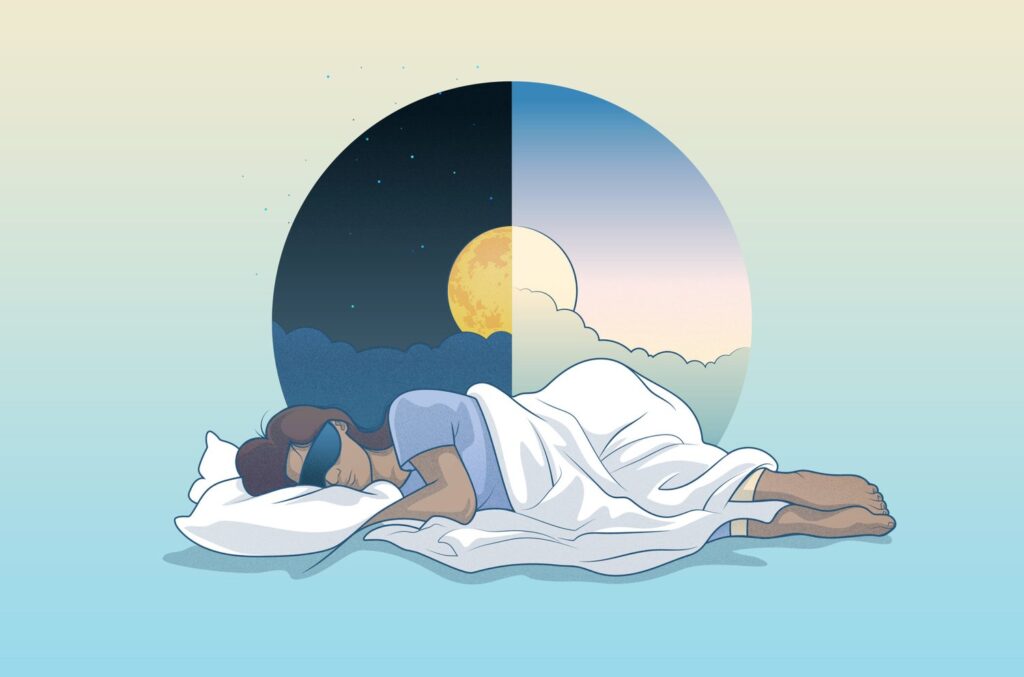Are We Programmed to Sleep Otherwise? — REM Reward


Our sleep habits aren’t as common as we would assume. Whereas a few of us soar away from bed at daybreak, others really feel most alive within the moonlight, thriving within the quiet of late-night hours. However what if these tendencies are greater than private desire? Analysis exhibits that our genes might play a major position in shaping our sleep patterns, suggesting that many people are biologically “programmed” to have distinctive sleep wants (Jones & Lane, 2020). Understanding this genetic basis provides a pathway to extra personalised and efficient sleep methods—and will rework how we method relaxation in our each day lives.
One software that may assist us determine our particular person sleep patterns is the Morningness-Eveningness Questionnaire (MEQ). By answering questions on splendid sleep occasions, alertness ranges, and productiveness peaks, the MEQ reveals whether or not you’re naturally a “morning lark” or a “night time owl” (Horne & Östberg, 1976). Our chronotype, because it’s known as, isn’t nearly once we desire to go to mattress or get up—it’s a rhythm that impacts our power, temper, and cognitive efficiency all through the day. For instance, morning individuals typically really feel sharp and alert within the earlier hours, whereas night time owls attain their peak later within the night. These patterns replicate deeper organic rhythms, typically making conventional work or faculty schedules difficult for many who don’t naturally match the early-to-bed, early-to-rise mildew.
Current analysis has recognized particular genes linked to those chronotypes, just like the PER3 gene, which influences whether or not we lean towards early rising or late sleeping (Takahashi et al., 2015). Variations on this gene, amongst others, might result in variations in sleep patterns, and our genes work together with environmental elements, too. As an illustration, an individual is likely to be genetically inclined to be an evening owl, however publicity to vivid screens at night time or constant late-night actions can strengthen this inclination (Wright et al., 2013). Conversely, societal norms and glued schedules could cause “social jetlag,” the place somebody’s organic and social clocks are misaligned. Over time, this misalignment contributes to fatigue, stress, and potential well being issues, underscoring the significance of honoring particular person sleep patterns the place doable (Roenneberg, Wirz-Justice, & Merrow, 2003).






